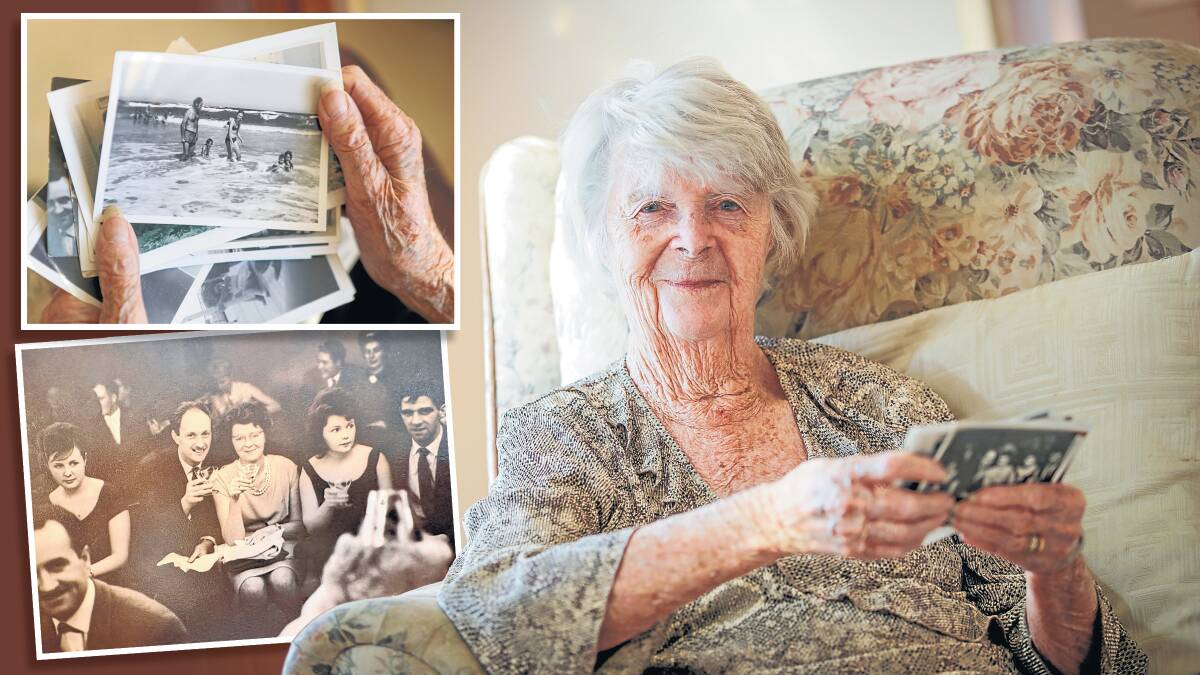
Sixty years ago, Kanahooka woman Pamela Hadley was in her mid-30s, raising four young children in a council house in Wrexham, a coal mining town in north Wales.
Subscribe now for unlimited access.
$0/
(min cost $0)
or signup to continue reading
One Sunday, her husband Russell came home from work at the nearby Brymbo steelworks and said he wanted to pack up and move to Australia.
"He worked seven days a week, that man, and he always picked up the Sunday paper on his way home, and one Sunday he came in and he said 'they want tradesmen in Australia and I'm applying'," she said.
"I can still see the ad in the newspaper - there's a golden beach and the blue sea in the background and this family and they're playing with this coloured beach ball and it was, you know, 'come to sunny Australia'."
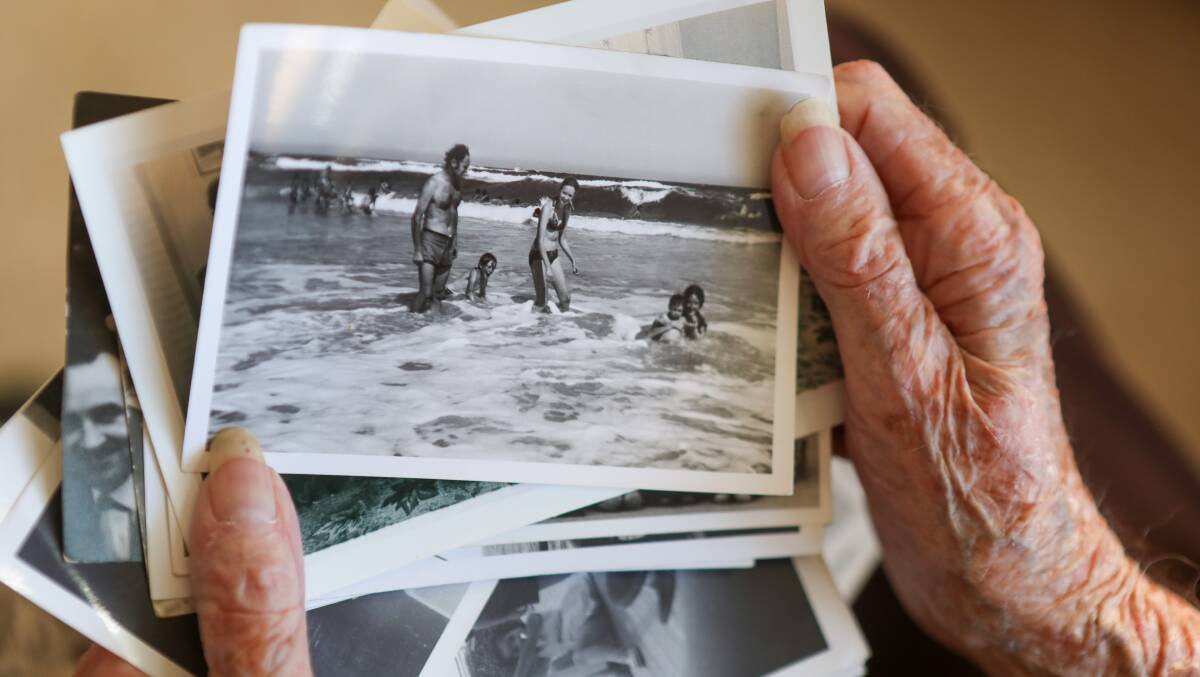
"So he was coming, and wherever he was going, I was going, so that was it.
"I think his idea was that we would come and make money and then go back. But we didn't go back."
And so, Pamela and Russell - my grandparents - became part of the roughly one million British migrants who came to Australia under the Assisted Passage Migration Scheme between 1945 and 1982.
With the passage originally costing 10 pounds, these migrants became known as "10-pound poms" and with the release of a new TV show titled as such this month, there's been a renewed focused on their arrival.
The scheme, along with other migration programs, had a particular impact on the development of Wollongong, where many workers came to staff the growing Port Kembla steelworks.
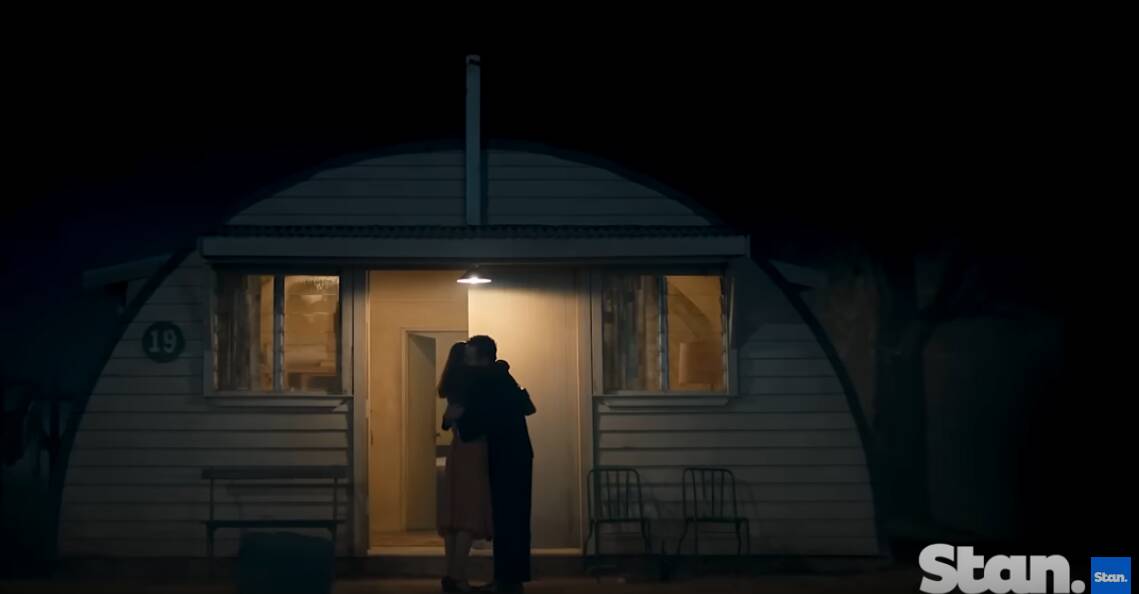
Even 40 years after the end of the scheme, Census results show its effects, with the Wollongong local government area having a significantly higher proportion of English, Irish and Scottish (as well as Italian and Macedonian, countries which were also a major part of the post-war migration) ancestry than the rest of NSW or Australia.
Days shy of her 93rd birthday, Pamela sees her late husband's decision to leave behind their parents, uproot their life in Wales and travel to a country they'd never given any thought to as "the best he ever made in his life, apart from marrying me".
But she didn't always feel that way as the family got swept up in the move.
Many of her recollections about this pivotal part of her life are echoed in the Ten Pound Poms series, which is one of the first popular culture explorations of the migration story, showing the shared experiences of thousands who have made the Illawarra their home.
"Before we could go, we had to go from Wrexham to Liverpool, which was about 35 miles - a long way back then over there - on the other side of the Mersey [river] and find Australia House, and then we sat down and were interviewed by this guy," Pamela said.
"We had to take our children with us because they wanted to see them to make sure that they all had their faculties and that they weren't going to be a burden on the country."
We made our life here, and we have these beautiful sunny days, and coming here was probably the most important thing that shaped all our lives.
Once they passed muster, the family sold almost everything from the carpet on the stairs to the family dog.
"We really only brought our clothes, except I brought a washing machine with me because I didn't know we'd have one, and some bolts of material to make singlets and petticoats," she said.
"It never hit me that we were leaving, until I saw was these people rolling up the carpet on my stairs. That was when it suddenly hit me, they're breaking my home up.
"We had this lovely dog, a big golden retriever - beautiful soft hearted dog - and her name was Lady, and we found a home for her and the guy came. I remember standing with [my daughter] Jacqueline in our front room, both of us tears all down our cheeks watching her going up the road."
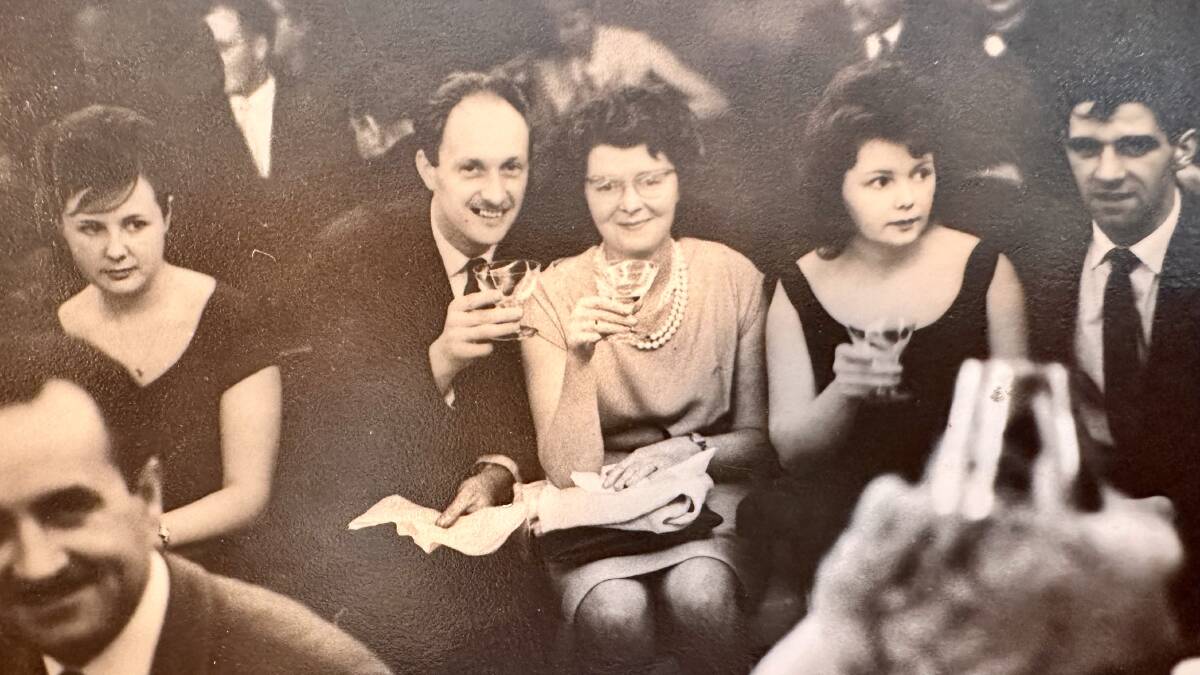
Just after Christmas 1963, they traveled to Southhampton to board the Aurelia - the passenger ship that would take them to Australia.
The journey went through the Mediterranean to the Suez Canal, where they stopped in Aden - now Yemen - and got off the boat the buy leather camel souvenirs, which they were later told to discard for fear they'd been contaminated.
Conditions on the five-week journey were simple and unfamiliar - but photographs also show dress up parties for the kids, the occasional evening drinks and the family sitting on the deck wearing sun hats.
Pam mostly remembers being seasick below deck, as she cared for her four kids, then aged 11 to 3, while separated from her husband.
"I was on one end of the boat and he was on the other end of the boat, and I had the two girls and [youngest son] Christopher, who was only about about three, in with me," she said.
"It was an Italian boat, so all we had was Italian food and we'd never had Italian food in our lives, but mostly you just ate what was in front of you. But, in the afternoon they put afternoon tea on and there was always a queue waiting for the tea and biscuits."
A warm welcome - or not
They first set foot on Australia soil in Fremantle on Pamela and Russell's 12th wedding anniversary - January 26, 1964. It couldn't have been more different to Wrexham, which they'd left in the depths of winter, as crowds turned out to celebrate the summer public holiday.
"We just thought, 'oh, what a lovely country, the sun is shining and all these people are out enjoying themselves'," Pamela said.
Stopping again in Melbourne, as other migrants left the boat to go to jobs in Victoria, she remembers being astonished that the first person she spoke to was a relative of a woman she knew in her home town.
"We went to this stall, I forget what it was, in Flinders Street Station, and the guy said, 'you sound as if you just come off the boat, where are you from?'," she said.
"'I said 'Wrexham in North Wales' and he said, 'my sister-in-law keeps the newsagent in Brook Street in Wrexham'. Would you believe it? First guy we spoke to."
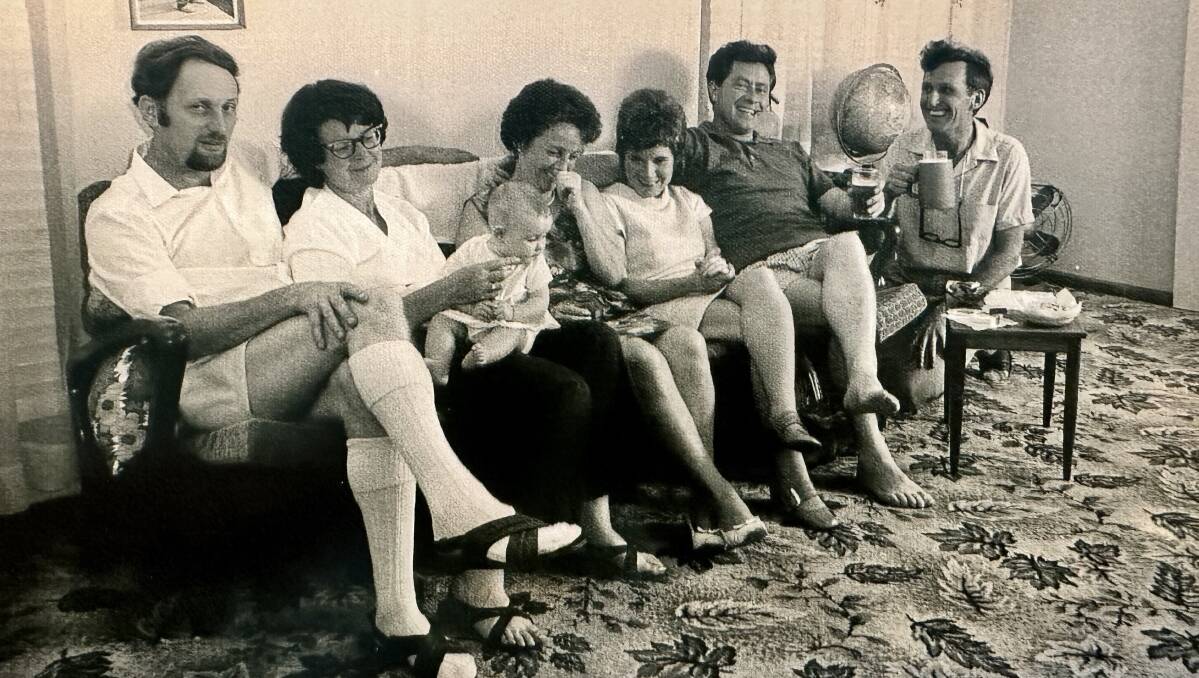
With more than half the passengers disembarked, the three-day leg from Melbourne to Sydney was the most enjoyable, Pamela says, with the family able to bunk together and meet others who were heading to work at Port Kembla.
Some of those families became their lifelong friends.
"That first day we sailed in to Sydney Harbour, I remember how beautiful it looked," she said.
Not everyone was welcoming, however, and she remembers encountering the phrase "whingeing Pom" almost as soon as they disembarked.
"One of the men from the boat, who became our friend, he was a Yorkshire man and he called a spade a spade," Pamela said.
"We got our lunch at Central Station, and he went up and said 'that were the worst bloody meal I've ever had in my life' and the man said 'oh god, more whingeing Poms'.
"Some people also thought we were migrants coming and taking their jobs, but really we weren't - they were filling vacant jobs. We landed on a Saturday, and Russell started work on the Monday at the steelworks."
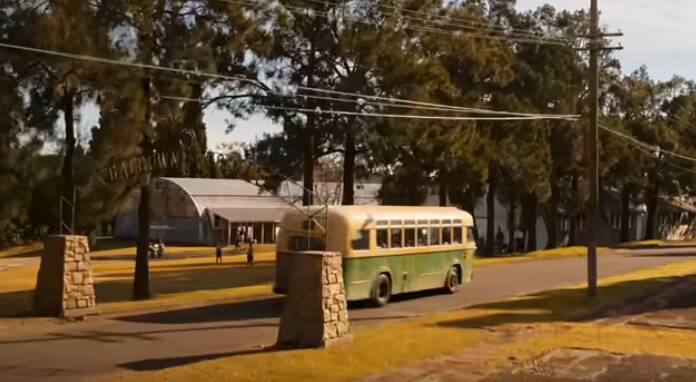
The Nissen huts
She said she remembers knowing they would live in hostel accommodation at first, but that the sparse, unusual conditions of the Nissen huts at Berkeley Migrant Hostel still came as a surprise.
"We were a family of six and that meant we had half a hut, and when you walked in there was a couch which was a night and day, that was ours, and then there was two bunks for the kids," she said.
"There was a thin wall dividing the huts and when you went to bed, you could hear everything that was going on in the bed next door!"
The huts had no kitchens and communal bathrooms, with simple meals provided.
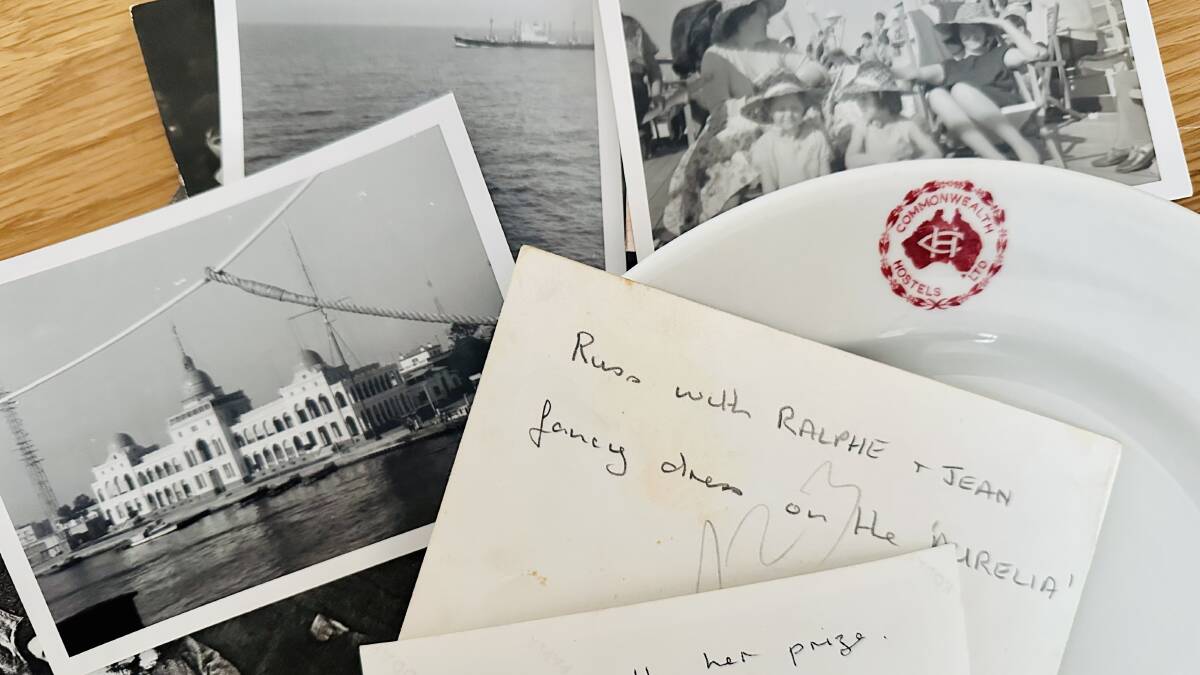
"There were a lot of Irish Catholics, so they'd always do fish Fridays - fish and chips, which was very popular each week. We'd take up our plates and get six piece of fish, six spoonfuls of chips," she said.
"The kids would go up to breakfast themselves, but we'd always go to dinners as a family and try to get together enough tables and chairs to eat together.
"In the end, we stayed there for maybe two years, while we saved to buy our own house."
Unlike in Wales, Pamela found work in Australia to help them save money, starting out at the hostel canteen and as a cleaner when people let.
This role had the added bonus of allowing her to suss out the best furniture.
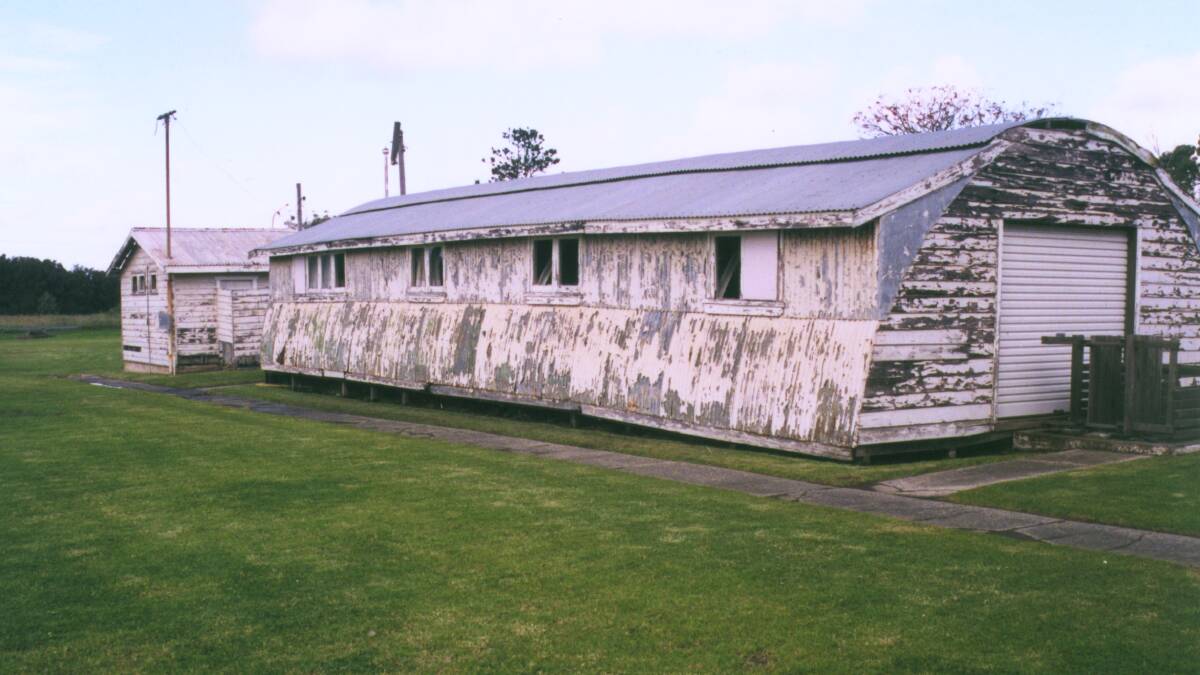
"When people left, either to go to a council house or onto their own land, you'd go and swap furniture," she said.
"Each person was given this small chest of drawers and a skinny wardrobe, but you had to leave it there, so if someone left and theirs was better, you'd go and get it."
For the first two years in her new country, Pam thought all the time about returning to Wales, but Russell loved his new job and new life and was determined that they would stay.
In late 1965, they finished building their own home in Lakelands Drive, in Dapto, and moved out of the hostel.
"It was lovely, to be in my own house and so we stayed," she said.
Next January, her family will celebrate 60 years since their arrival, with the 22-month stay at Berkeley hostel making up only a tiny fraction of their lives.
Nevertheless, their passage over and first months in Australia loom large in their memories.
An Australian citizen for nearly 30 years, Pamela returned to Wales a handful of times but have never had any hesitancy in calling Wollongong home.
"My family's grown here, they've got children, and now there's a fourth generation of great-grandchildren too," she said.
"We made our life here, and we have these beautiful sunny days, and coming here was probably the most important thing that shaped all our lives."
Reading this on mobile web? Download our news app. It's faster, easier to read and we'll send you alerts for breaking news as it happens. Download in the Apple Store or Google Play.


